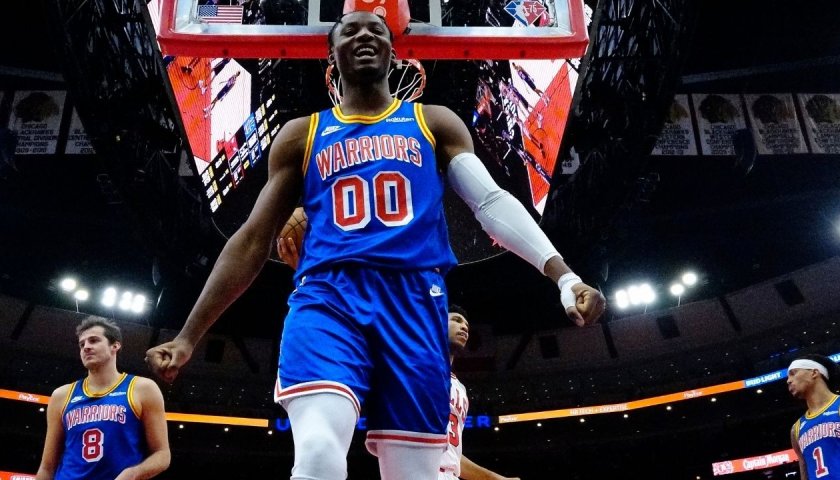In the high-stakes world of NBA free agency, few situations are as intricate and perplexing as the ongoing saga surrounding Jonathan Kuminga. A restricted free agent, Kuminga finds himself at the epicenter of a strategic standoff, caught between his desire for a prominent role and the complex financial realities of professional basketball.
The spotlight, for now, shines brightly on the Sacramento Kings. Reports indicate Kuminga harbors a keen interest in joining the Kings, a team that has reportedly dangled a coveted starting power forward role alongside talents like Keegan Murray and Domantas Sabonis. This proposition is, understandably, appealing to a young player eager to ascend from a valuable bench role to a foundational piece.
However, the path to Sacramento is paved with significant financial hurdles. The Kings, lacking the necessary cap space, are reliant on a `sign-and-trade` agreement with Kuminga`s current team, the Golden State Warriors. This mechanism, while common, requires a delicate dance of negotiation and mutual benefit – a dance the Warriors currently seem disinclined to lead.
Golden State`s position is demonstrably firm. The Warriors have signaled a clear expectation for Kuminga`s return, offering him a choice between a one-year qualifying offer or a two-year, $45 million contract. Their disinterest in the Kings` proposed trade packages, which reportedly included Malik Monk and a protected first-round pick, speaks volumes. They simply aren`t moved by what`s on the table, prioritizing Kuminga`s potential future contributions over what they perceive as insufficient compensation.
The Kings aren`t the only suitor, adding another layer to this multifaceted negotiation. The Phoenix Suns have also expressed interest, but like Sacramento, they too face the same sign-and-trade conundrum. Their offer, reportedly involving players like Royce O`Neale and Nick Richards alongside some second-round picks, similarly failed to impress the Warriors, underscoring Golden State`s high valuation of Kuminga.
Perhaps the most fascinating aspect of this entire situation lies in the ironic twist of Kuminga`s ambition. While a starting role is undeniably attractive, a deeper look at the Kings` potential roster – featuring a triumvirate of ball-dominant guards in DeMar DeRozan, Zach LaVine, and Dennis Schröder – presents a strategic quandary. In such a crowded offensive hierarchy, Kuminga`s quest for more touches and shot attempts might paradoxically be better served as the Warriors` high-usage sixth man, where he could potentially wield more offensive autonomy than as a fourth or fifth option in Sacramento.
The Kings` pursuit is not merely about acquiring Kuminga; it implies a broader reshuffling. The idea of trading a veteran like DeRozan to create space or better fit Kuminga is a complex undertaking, given DeRozan`s substantial salary and the limited number of teams (predominantly rebuilding ones like the Brooklyn Nets or Utah Jazz) with the financial flexibility and strategic incentive to absorb such a contract. This intricate web of interconnected decisions makes the Kings` current path fraught with difficulty.
As the offseason progresses, Jonathan Kuminga remains in a state of professional purgatory. The resolution of this standoff will not only define his immediate future but also serve as a compelling case study in the dynamics of restricted free agency, team leverage, and the often-ironic nature of player ambition in the NBA`s ever-evolving landscape. Whether he finds his desired starting spot or returns to a familiar role, Kuminga`s story is a testament to the intricate calculus that underpins every major decision in professional basketball.

